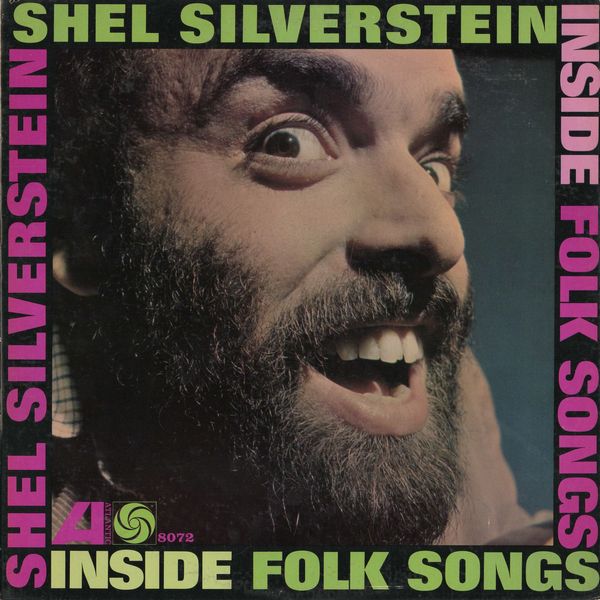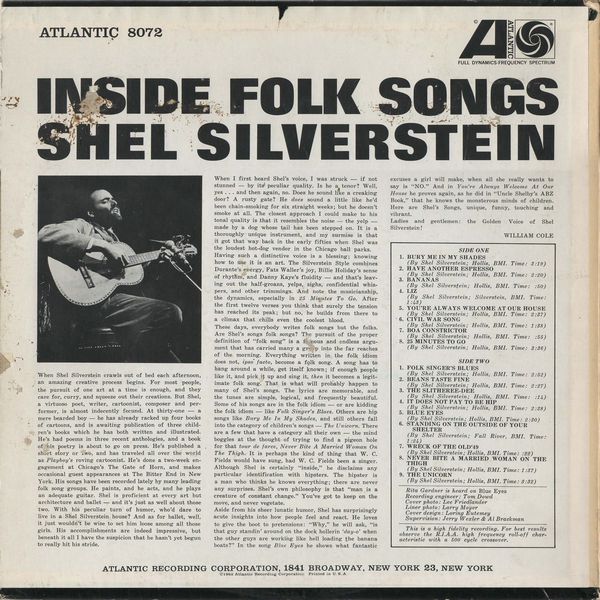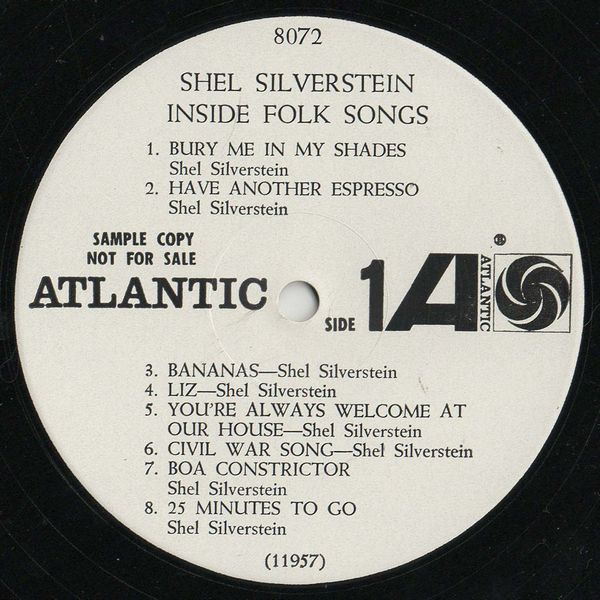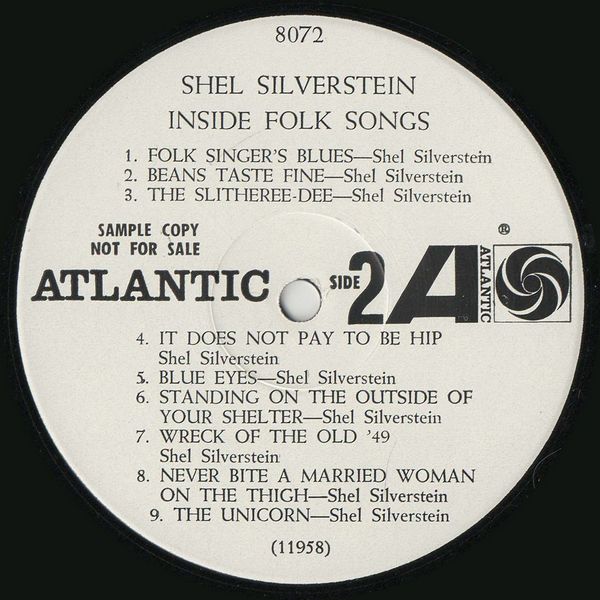
 |



|
Sleeve Notes
When Shel Silverstein crawls out of bed each afternoon, an amazing creative process begins. For most people, the pursuit of one art at a time is enough, and they care for, curry, and squeeze out their creations. But Shel, a virtuoso poet, writer, cartoonist, composer and performer, is almost indecently fecund. At thirty-one — a mere bearded boy — he has already racked up four books of cartoons, and is awaiting publication of three children's books which he has both written and illustrated. He's had poems in three recent anthologies, and a book of his poetry is about to go on press. He's published a short story or two, and has traveled all over the world as Playboy's roving cartoonist. He's done a two-week engagement at Chicago's The Gate of Horn, and makes occasional guest appearances at The Bitter End in New York. His songs have been recorded lately by many leading folk song groups. He paints, and he acts, and he plays an adequate guitar. Shel is proficient at every art but architecture and ballet — and it's just as well about those two. With his peculiar turn of humor, who'd dare to live in a Shel Silverstein house? And as for ballet, well, it just wouldn't be wise to set him loose among all those girls. His accomplishments are indeed impressive, but beneath it all I have the suspicion that he hasn't yet begun to really hit his stride.
When I first heard Shel's voice, I was struck — if not stunned — by its peculiar quality. Is he a tenor? Well, yes … and then again, no. Does he sound like a creaking door? A rusty gate? He does sound a little like he'd been chain-smoking for six straight weeks; but he doesn't smoke at all. The closest approach I could make to his tonal quality is that it resembles the noise — the yelp — made by a dog whose tail has been stepped on. It is a thoroughly unique instrument, and my surmise is that it got that way back in the early fifties when Shel was the loudest hot-dog vendor in the Chicago ball parks. Having such a distinctive voice is a blessing; knowing how to use it is an art. The Silverstein Style combines Durante's energy, Fats Waller's joy, Billie Holiday's sense of rhythm, and Danny Kaye's fluidity — and that's leaving out the half-groans, yelps, sighs, confidential whispers, and other trimmings. And note the musicianship, the dynamics, especially in 25 Minutes To Go. After the first twelve verses you think that surely the tension has reached its peak; but no, he builds from there to a climax that chills even the coolest blood.
These days, everybody writes folk songs but the folks. Are Shel's songs folk songs? The pursuit of the proper definition of "folk song" is a famous and endless argument that has carried many a group into the far reaches of the morning. Everything written in the folk idiom does not, ipso facto, become a folk song. A song has to hang around a while, get itself known; if enough people like it, and pick it up and sing it, then it becomes a legitimate folk song. That is what will probably happen to many of Shel's songs. The lyrics are memorable, and the tunes are simple, logical, and frequently beautiful. Some of his songs are in the folk idiom — or are kidding the folk idiom — like Folk Singer's Blues. Others are hip songs like Bury Me In My Shades, and still others fall into the category of children's songs — The Unicorn. There are a few that have a category all their own — the mind boggles at the thought of trying to find a pigeon hole for that tour de farce, Never Bite A Married Woman On The Thigh. It is perhaps the kind of thing that W. C. Fields would have sung, had W. C. Fields been a singer. Although Shel is certainly "inside," he disclaims any particular identification with hipsters. The hipster is a man who thinks he knows everything; there are never any surprises. Shel's own philosophy is that "man is a creature of constant change." You've got to keep on the move, and never vegetate.
Aside from his sheer lunatic humor, Shel has surprisingly acute insights into how people feel and react. He loves to give the boot to pretensions: "Why," he will ask, "is that guy standin' around on the dock hollerin 'day-o' when the other guys are working like hell loading the banana boats?" In the song Blue Eyes he shows what fantastic excuses a girl will make, when all she really wants to say is "NO." And in You're Always Welcome At Our House he proves again, as he did in "Uncle Shelby's ABZ Book," that he knows the monsterous minds of children. Here are Shel's Songs, unique, funny, touching and vibrant.
Ladies and gentlemen: the Golden Voice of Shel Silverstein!
William Cole